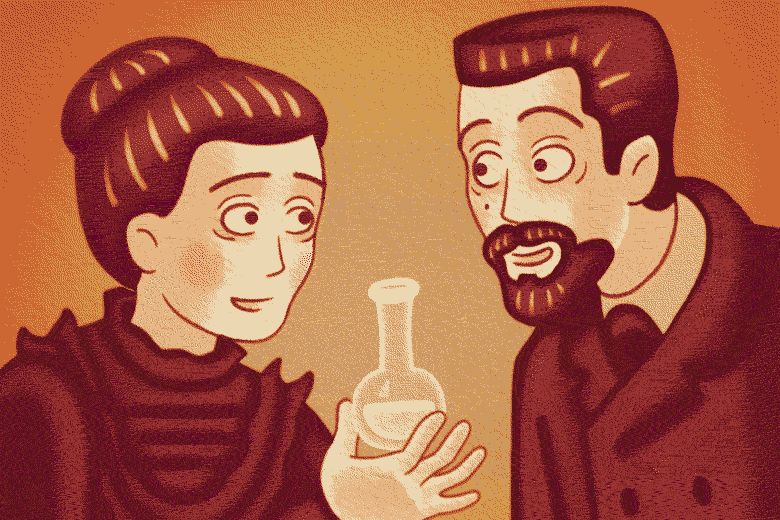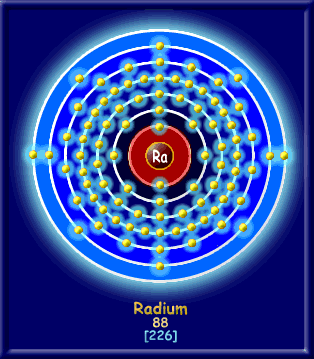Today (May 15, 1859) is the Birthday of Nobel Prize-winning Pierre Curie, pioneer of the Radium Radiation Invention for the Treatment of Stress and Cancer.

Pierre Curie was born on May 15, 1859, in Paris. His father was Sophie Claire Debouille Currie, the mother of Dr. Eugene Currie. His father worked as a welfare physician. Youth education began at home for Pierre Curie. His mathematical interest was manifested at the age of 14. At the age of 16, he entered university. At the age of 18, he earned a bachelor's degree in the United States. But due to a lack of finances, it is not possible to perform such worthy tasks. He could only serve as a low-paid lab assistant.

He was involved in the first important scientific study with his brother, Jacques. At the time, Pierre's age was 21. His brother's age was 24. They discovered the piezoelectric effect. That is, when they exert pressure on certain crystals, they exhibit voltage. Instead, putting them in the electric field puts them under pressure. The fundamental properties of both of these functions helped to improve the laws of physics.

The Curie brothers developed the Fuso-electric quartz electrometer when they discovered the principle of pressure electrolysis. Twenty years later the term was used for the early studies of Marie Curie. This theory was later applied to microphones, quartz watches, and batteries. Before graduating, he created a Torsion Balance to detect magnetic properties. He received his doctorate of studies on objects that are severely damaged by magnetism and partially affected by magnetism. The law is known today as the "Curie law" was his invention of the transformation of paramagnetic materials into heat.


He also found that iron temperatures would lose their magnetism when the temperature was too high. This temperature is called Curie Point. Marie Curie married him in 1895 when she met him for some research. Together with Spouse Marie Curie, they tried to isolate elements such as polonium and radium. The two first coined the term "radioactivity". They also excelled in their study. Pierre Curie's 'crystal electrometer' has been very useful for Mary's doctoral studies.

Pierre and one of his students made their first discovery of nuclear energy by realizing the thermal energy emitted from radium particles. They were the first to find radioactive materials out of radioactive materials. Using the magnetic fields, they found that some of the particles emitted were negative, some resistive, and some neutral. These were the Alpha rays, the Beta rays, the Alpha, the Beta, and the Gamma rays. The unit used to measure radiation is the Curie. The calculation is that a curie will cause 3.7x10 ^ 10 decays per second. In 1910, the Radiology Congress introduced this unit to measure radiation, which Pierre Curie boasted.

Radium is a radioactive element with the molecular potential of Ra. Its atomic number is 88. Its nuclear capacity is 226. Radium in the form of radium chloride was discovered on April 20, 1898, by the Marieguri and Pieriguri couple Radium was isolated from the mineral uranite at the French Academy of Sciences five days later. Maiduguri and Andr--Louis Debierne electrified radium chloride in 1911 to produce radium in its metallic state. Madame Marie Curie is a physicist and chemist. The world's first female scientist. Who introduced the main effects in the scientific theory of radiation. Radium, which he invented, plays an important role in cancer treatment.
It has hundreds of thousands of times more radiation than uranium. Pierre Curie used it on his body to find the true effect of radium. The first was irritation. Then there was soreness. At the same time, they found that using radium could heal ulcers. This is called radiation therapy or radium therapy. Radium has many applications. Bacterial and germ-resistant, the seeds can prevent germination and are used for some skin infections.

They continued to study radiation and found a way to produce radiation in vitro. A scientist who shared the 1903 Nobel Prize for Physics with Henry Beckerle and Marie Curie. In 1903, he was awarded the Jump Award for his study of radium. He has received awards such as the Davey Medal, Mateusz Medal, and the Cresson Medal. He died in Paris on April 19, 1906, when a heavy cargo collided with him when he was crossing the road at Ruedoubine during a severe rainstorm. Several postage stamps were issued to honor the Curie couple.
Source: Wikipedia
Information: Dr. P. Ramesh, Assistant Professor of Physics, Nehru Memorial College, Puthanampatti, Trichy.
Get information like this
https://t.me/joinchat/jpqj3jQLN51kYTk9
Join Telegram Group.
https://chat.whatsapp.com/HHC5m0Jz3Ue1E8ilgta0YT
Join WhatsApp Group
Thanks.
Also, Read
🛑👍 CSIR-NET Physics Materials and Problems
🛑📕 21 GB and Hundreds of Physics E-Books Collection.
🛑🛥️ How does an Electric Motor work? (DC Motor).
🛑🤹♂️ Science Academies' Summer Research Fellowship Programme for Students and Teachers 2022.
🛑🔌 How does a Transformer work - Working Principle electrical engineering.
🛑🎙️ Transistors Explained - How transistors work.
🛑🔥⚡ How Thermocouples Work - basic working principle.
🛑🔌 Voltage Explained - What is Voltage? Basic electricity potential difference
🛑🔌 What is CURRENT– electric current explained, electricity basics.
Also, Read
🛑👍 CSIR-NET Physics Materials and Problems
🛑📕 21 GB and Hundreds of Physics E-Books Collection.
🛑🛥️ How does an Electric Motor work? (DC Motor).
🛑🤹♂️ Science Academies' Summer Research Fellowship Programme for Students and Teachers 2022.
🛑🔌 How does a Transformer work - Working Principle electrical engineering.
🛑🎙️ Transistors Explained - How transistors work.
🛑🔥⚡ How Thermocouples Work - basic working principle.
🛑🔌 Voltage Explained - What is Voltage? Basic electricity potential difference
🛑🔌 What is CURRENT– electric current explained, electricity basics.



.png)
.jpg)
No comments:
Post a Comment